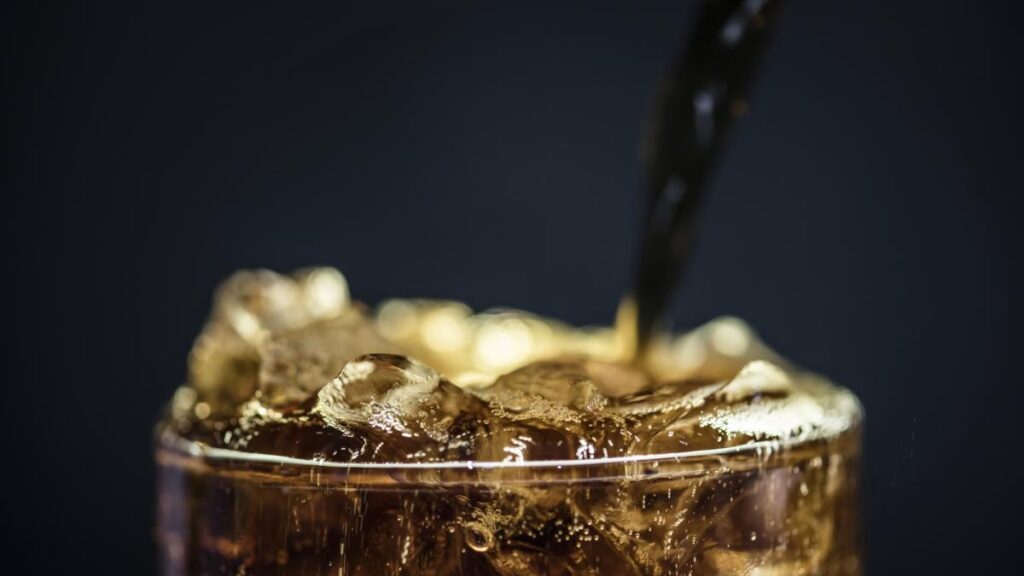The Trump Factor: Sparking a Beverage Industry Earthquake
A tweet from President Donald Trump ignited a storm in the beverage industry: “I’ve been talking to Coca-Cola about using cane sugar in the United States, and they’ve agreed. It will be a very good decision for them,” he wrote. Although Coca-Cola hasn’t confirmed a definitive change, they acknowledged the upcoming launch of a cane sugar version this fall without eliminating their traditional high fructose corn syrup (HFCS) formula.
What is High Fructose Corn Syrup?
High fructose corn syrup (HFCS) is a liquid sweetener derived from corn starch, undergoing an enzymatic process to convert part of the glucose into fructose. Variants like HFCS-42 and HFCS-55 (containing 42% or 55% fructose, similar to sucrose’s 50% fructose and 50% glucose) have been used since the 1980s in the US, replacing sugar due to its lower cost, ease of transportation, and longer shelf life.
Health Concerns: Is HFCS Worse Than Regular Sugar?
Both HFCS and regular sugar provide the same 4 calories per gram. Excessive consumption is linked to obesity, type 2 diabetes, cardiovascular diseases, and fatty liver. Studies from Harvard School of Public Health indicate that there’s no solid evidence showing HFCS is significantly more harmful than regular sugar when consumed in equivalent amounts. The difference lies in HFCS’s slightly higher fructose proportion, potentially increasing liver fat production, but this effect is minor compared to the real issue: excessive added sugars, regardless of their source.
Perception: Is HFCS on the Consumer’s Blacklist?
Rejection of HFCS often stems from perception rather than science. HFCS is associated with ultra-processed foods and artificial labels, while cane sugar is perceived as more “natural.” The “clean label” trend has driven iconic brands like Coca-Cola to launch products promising a return to traditional sugar, aligning with millennial and Gen Z preferences.
Why Do Companies Prefer HFCS?
HFCS is economical due to US corn subsidies and cheaper than refined sugar, especially with import tariffs on cane sugar. It’s also liquid, easy to incorporate in industrial processes, and ensures flavor and texture stability.
Environmental Impacts: Is HFCS Less Sustainable?
Intensive corn cultivation for HFCS production has a high environmental cost: it demands massive water, pesticide, and fertilizer use, causing soil erosion, groundwater contamination, and greenhouse gas emissions.
Coca-Cola’s Future with HFCS: A Balancing Act
Coca-Cola won’t abandon HFCS immediately. They plan to release a cane sugar version in the fall for the US market without eliminating their HFCS formula. This strategy seems more about market trends than scientific evidence, offering “more natural” options for consumers seeking transparency in labels without compromising cost structure.
Key Questions and Answers
- Q: Why is Coca-Cola considering a return to cane sugar in the US? A: To cater to consumer preferences for ‘clean label’ products and market trends.
- Q: Is HFCS more harmful than regular sugar? A: There’s no solid evidence showing significant differences in health impacts when consumed in equivalent amounts.
- Q: Why did beverage companies switch to HFCS? A: Due to its lower cost, ease of transportation, and longer shelf life compared to sugar.
- Q: What are the environmental impacts of HFCS production? A: Intensive corn cultivation demands massive water, pesticide, and fertilizer use, causing soil erosion, groundwater contamination, and greenhouse gas emissions.
- Q: Would a complete switch from HFCS to cane sugar be costly for Coca-Cola? A: Yes, with estimated annual costs exceeding $1 billion for renegotiating trade agreements, increasing sugar imports, and modifying logistics chains.






